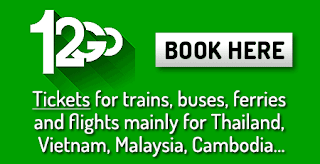Fresh off recent announcement of positive international tourist arrival growth, the Malaysian Association of Hotels (MAH) has revealed that hotels in the country are registering lower occupancy.
An internal hotel occupancy survey recorded a drop of -4.71% to 60.8% for the first nine months of the year compared to the same period in 2018 at 65.51%.
"The same was seen for the first half of 2019 where earlier in August, according to Tourism Malaysia, there was an increase of +4.9% or 13.4 million in international tourist arrivals but hotel occupancy recorded a drop of -4.75% compared to the same period last year,” MAH said in a statement.
According to MAH, the published results "raised more doubts and concerns than it could draw praises”.
"While (the results) should indicate a healthy and recovering or even growing tourism industry, the same was not felt by industry stakeholders,” MAH said.
Tourism, Arts and Culture Minister Datuk Mohamaddin Ketapi announced earlier this week that international tourist arrivals increased for the first three quarters of 2019.
Between January and September, Malaysia welcomed 20,109,203 tourists, a 3.7% growth compared to the same period last year.
The first nine months of the year also saw tourism receipts increase by 6.9% to reach RM66.14bil compared to RM61.85bil for the same period last year.
MAH chief executive officer Yap Lip Seng attributed the hotel industry’s struggle to the rise of unregulated short-term accommodations (STA) like Airbnb.
Earlier this year, it was reported that Malaysia Productivity Corporation (MPC) was drafting a regulatory framework for STAs in Malaysia.
MPC, regulatory body under the International Trade and Industry Ministry, has held discussion with key industry stakeholders since July last year.
The regulatory framework’s draft guideline is currently pending public consultation in its final stage.
Yap raised concerns regarding the implementation and enforcement of the regulatory guidelines.
"The guidelines are workable at this point where many of the proposed policies are based on proven initiatives in cities all over the world. However, we are concerned as it would require much enforcement efforts and the authorities need to be committed,” he said.
Last year, Airbnb welcomed more than 3.25 million guests in Malaysia, which translates to a 73% year-on-year jump.
In previous statements, Airbnb said that it will continue to work closely with the authorities with regards to STA regulation.
Malaysia aims to see 30 million international tourist arrivals as part of Visit Malaysia 2020 (VM2020) next year, and bring in total tourist receipts of RM100bil.
Source - The Star

































